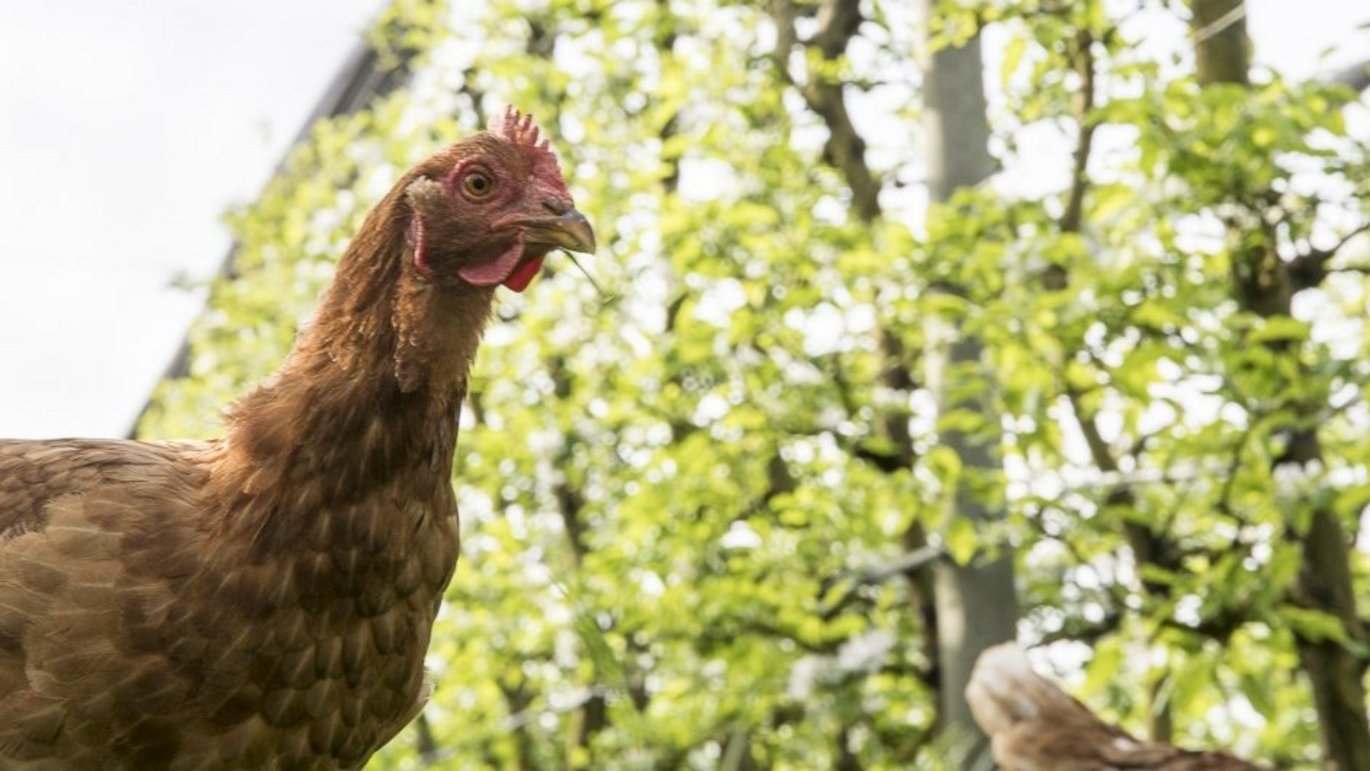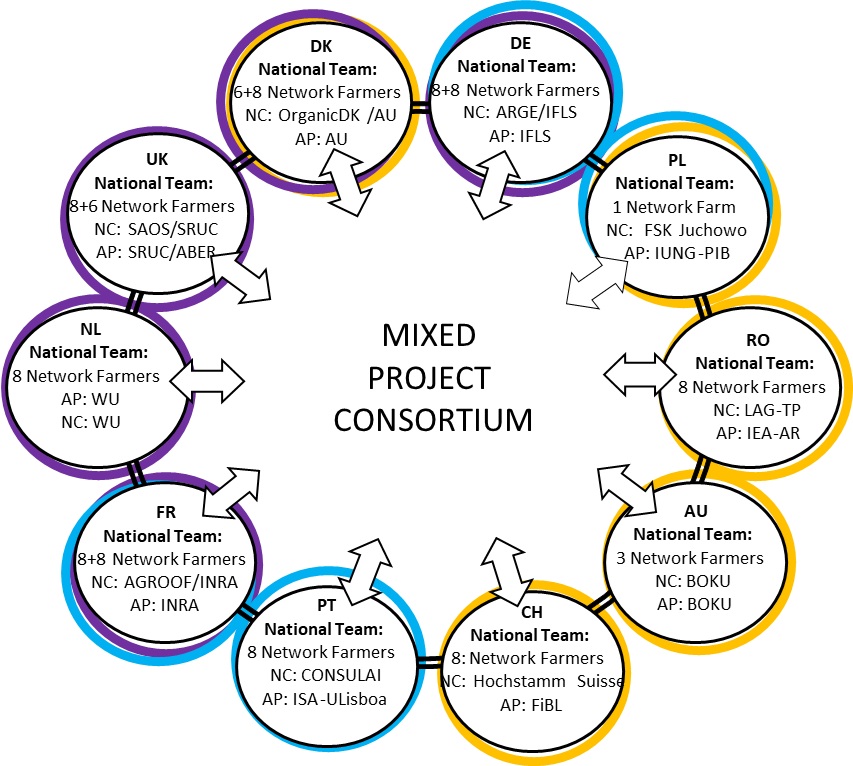Participatory research for developing mixed farming and agro-forestry systems
Participatory learning hubs (PLH’s), consisting of farmer networks, network leaders and academics, were established in 10 European countries to conduct participatory research activities to develop their mixed farming and agro-forestry systems.


A reflective learning methodology was implemented, whereby the farmer network identified challenges, designed and conducted research projects (with input from whole PLH) at the local level, and then knowledge was shared at the European level via the MIXED project consortium. Shared learnings were then discussed, solutions and suggestions put forward, and these were then shared back with the farmer networks at the local level. This iterative process followed 4 cycles within the project to allow network actors to address a challenge of particular interest to them in their context. The methodological approach was evaluated at 3 stages throughout the project and key lessons learned are presented below.
The Reflective Learning Methodology (Moschitz and Home, 2014) implemented in MIXED included two spaces where learning took place. On the local level, learning took place in the field (Field Workshops), where knowledge was co-produced between (innovator) stakeholders (in this case, the members of the participating MIXED farming networks) and the MIXED researchers. On the project level, the MIXED researchers met in Reflection Workshops to develop the approach and to reflect on the outcomes of its application. These processes were interlinked: The outcomes of the reflection workshops fed into the field work in the form of suggested methods, and an initial set of research questions. Reports on the results of the field work contained a reflection on the methods that were applied, responses to the research questions, and feedback to adapt the research agenda according to the needs of the participating networks. The recurring reflective processes that flowed through the research project thus made the learning and research agendas profoundly dynamic and included ongoing monitoring.
Fundamental to the effective implementation of the Reflective Learning Methodology, was the creation of learning partnerships (Participatory Learning Hubs (PLH’s)) and the establishment of a framework, including guidelines and training to refresh facilitation skills. The PLH’s worked together to find solutions to a variety of bottlenecks on-farm, in landscapes and value chains and at the regional/national level consisted of an academic partner, a network leader and a representative group of up to 15 farmers associated with that network. Each PLH was broadly categorized based on mixed farm type, including arable + livestock, fruit/nut trees + livestock or arable, livestock + energy crops/fodder trees. This categorization was made to allow PLH’s to identify others in the project with similar mixed farming systems, and therefore, possibilities for greater knowledge sharing.
In total there were 4 Field Workshops per farmer network and 4 Reflection Workshops during the lifetime of the MIXED project. The aims and objectives of each Field Workshop differed slightly but included initial identification of challenges to mixed farming and agro-forestry systems (MiFAS), design and implementation of a research project or intervention to address a prioritised challenge or challenges; reflection, evaluation and if needed redesign of research/intervention to further develop knowledge around the identified challenge(s). Some networks chose to focus on one challenge whilst others addressed multiple challenges. More information about the networks and their activities in MIXED can be found on the partner pages of the MIXED website.
An evaluation of the methodology was conducted at three stages (start, middle and end) to gauge partners understanding of the approach and identify any strengths or weaknesses. A number of key learnings were identified from these evaluations:
1) The usefulness of the methodology in cross network learning is challenged if cases are sufficiently different that the problems that they face are too different for any useful sharing of knowledge.
2) It is essential to gain momentum early in a project such as this and then maintain this throughout. COVID restrictions early in the project made physical engagement early on challenging, however once field trials and activities had commenced farmer networks felt much more engaged.
3) A broad geographical distribution of case study initiatives (and farmers within a networks) can cause logistical challenges in terms of physical meetings and visits. Where farmers were able to meet physically for field workshops and where reciprocal physical visits between networks were able to take place, farmer networks found such meetings extremely rewarding.
Learn more about the network national teams in the project
Read the full report (TBA soon)
